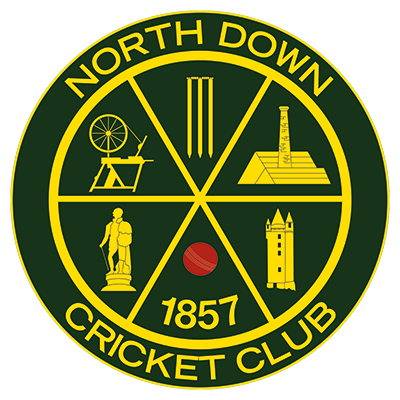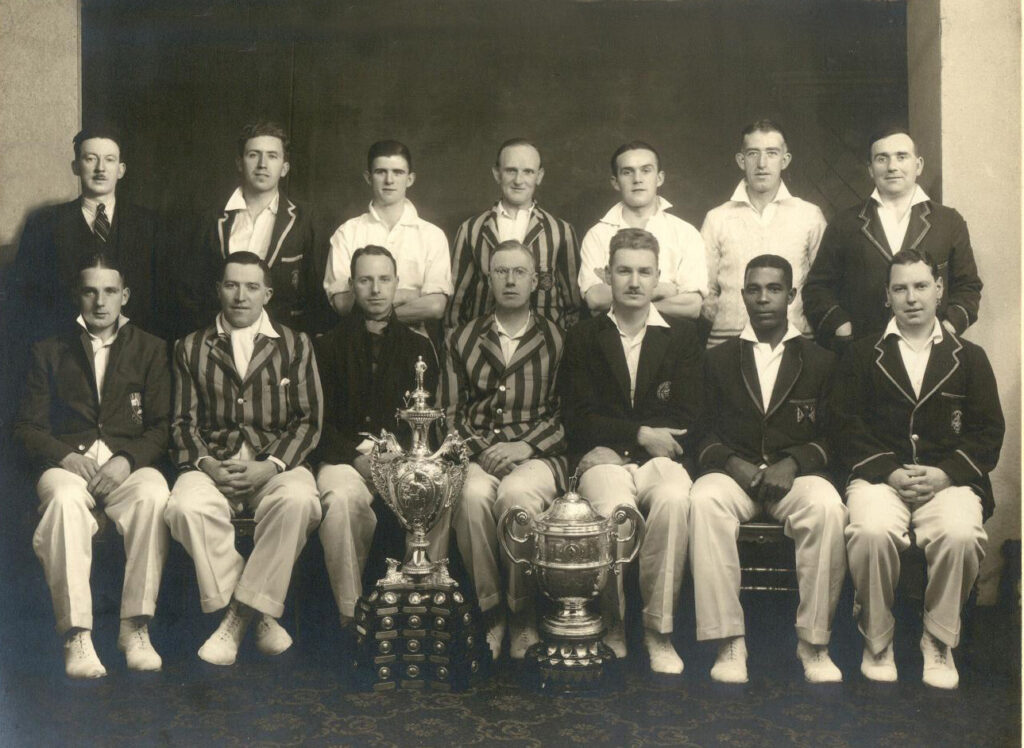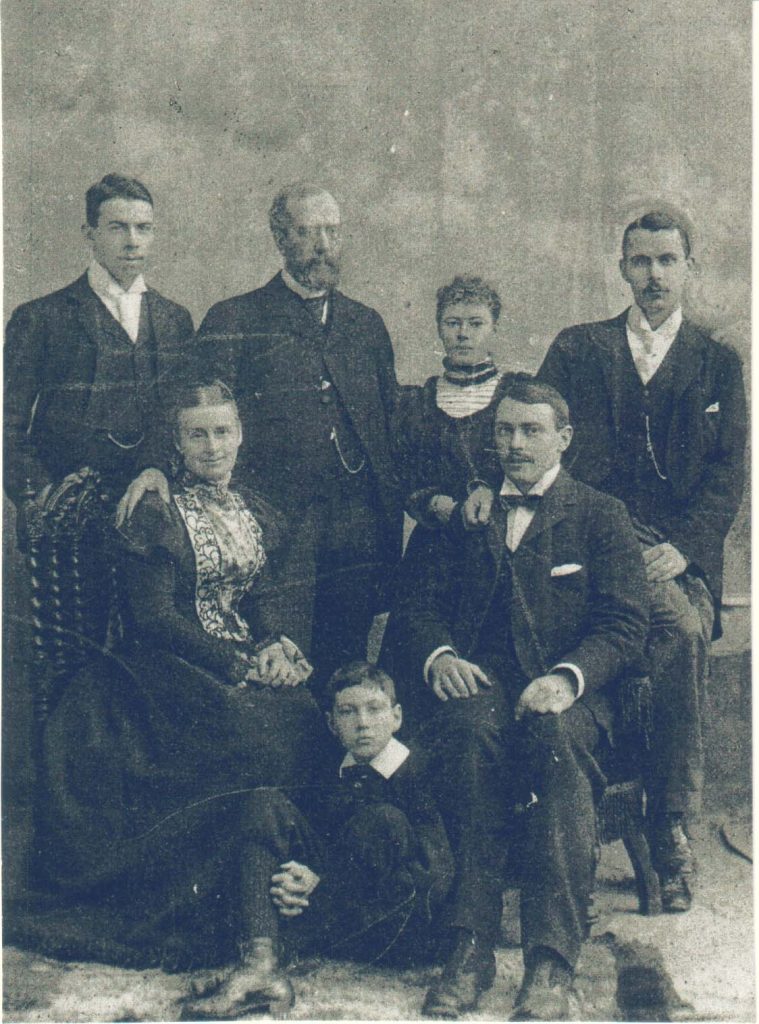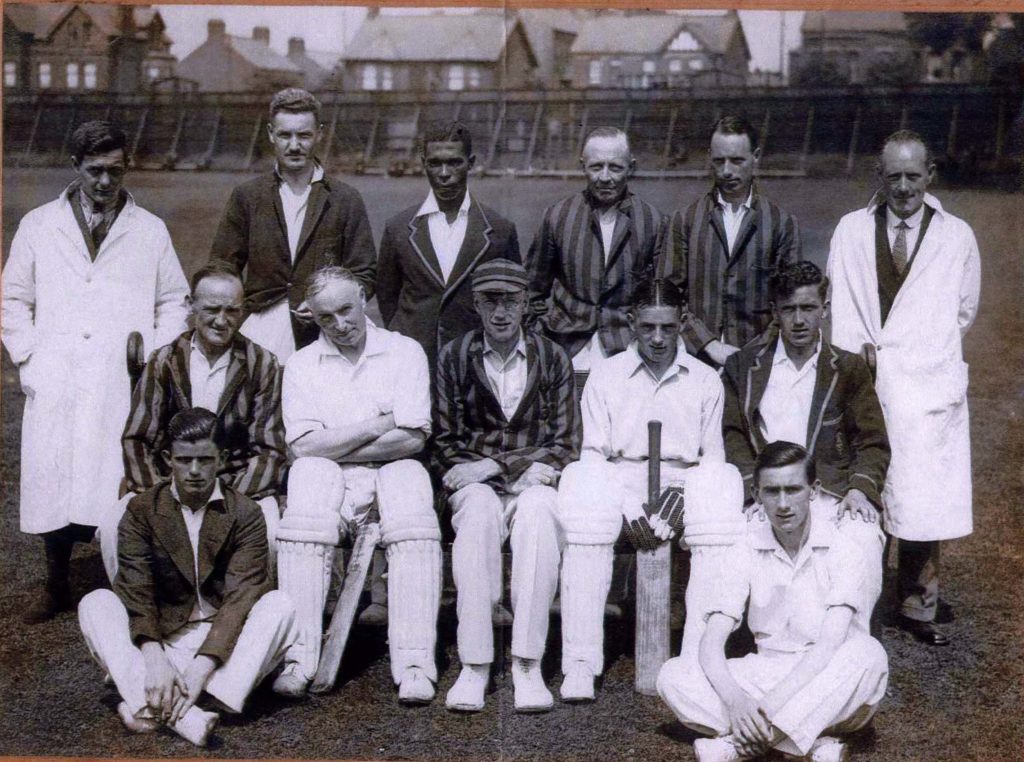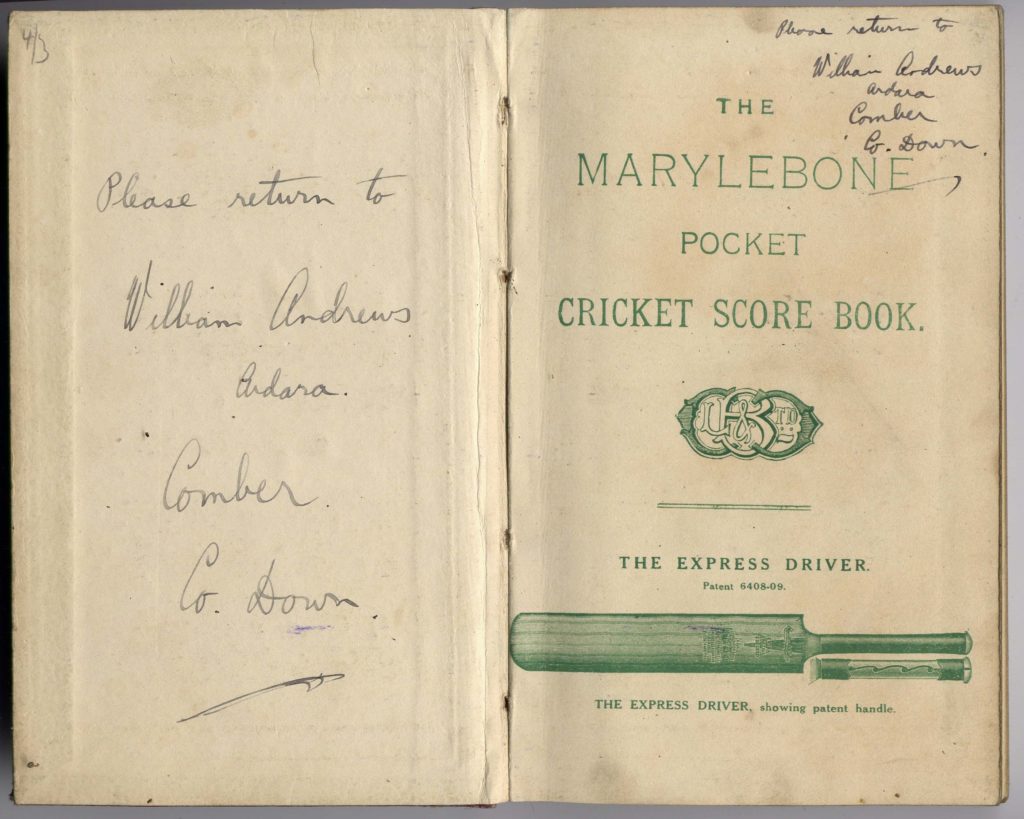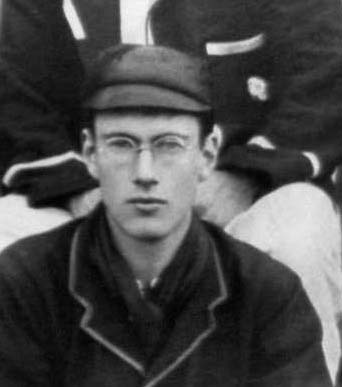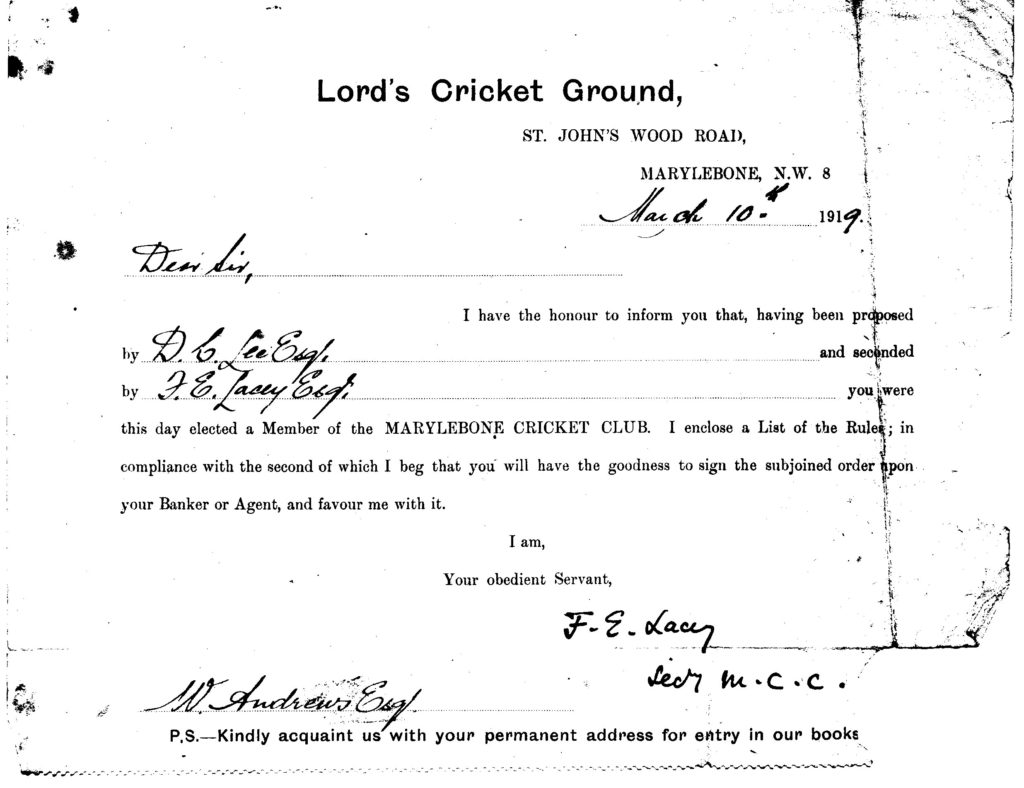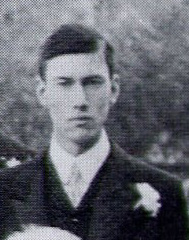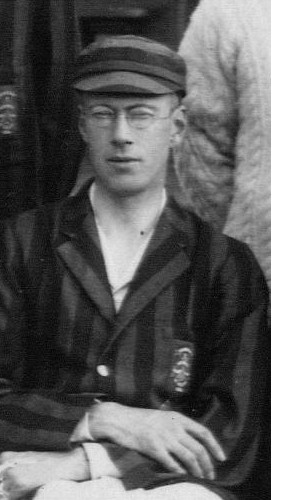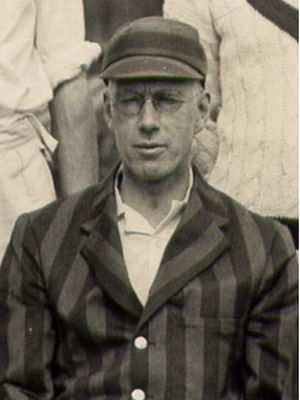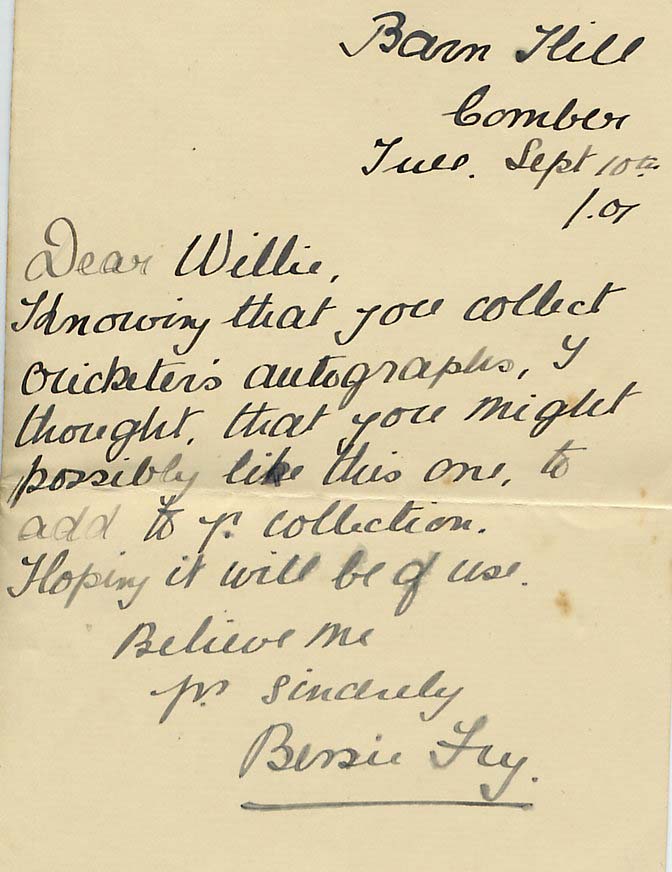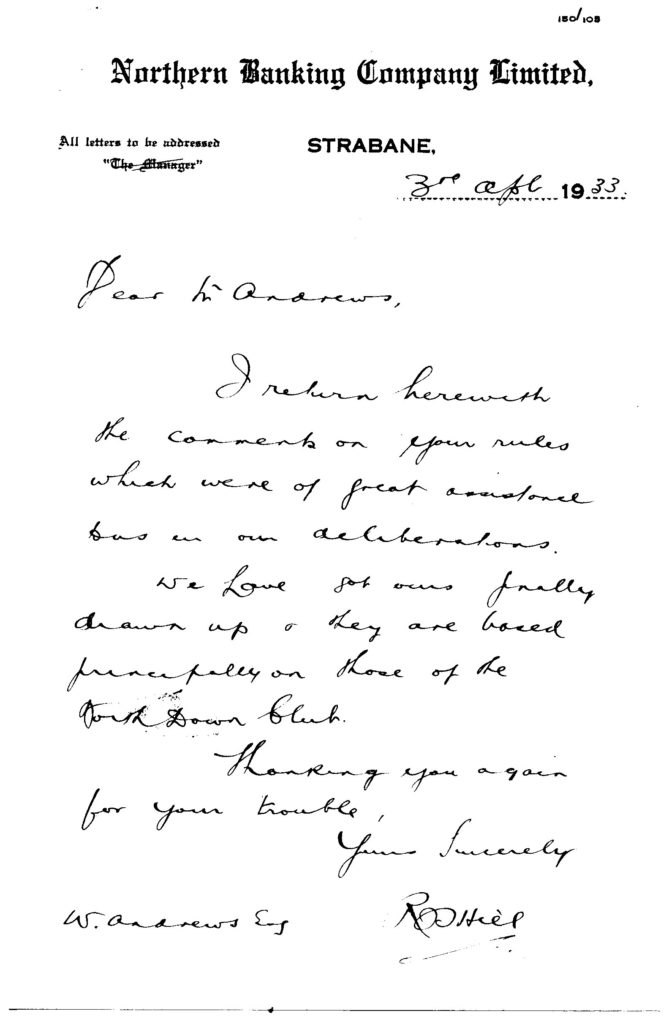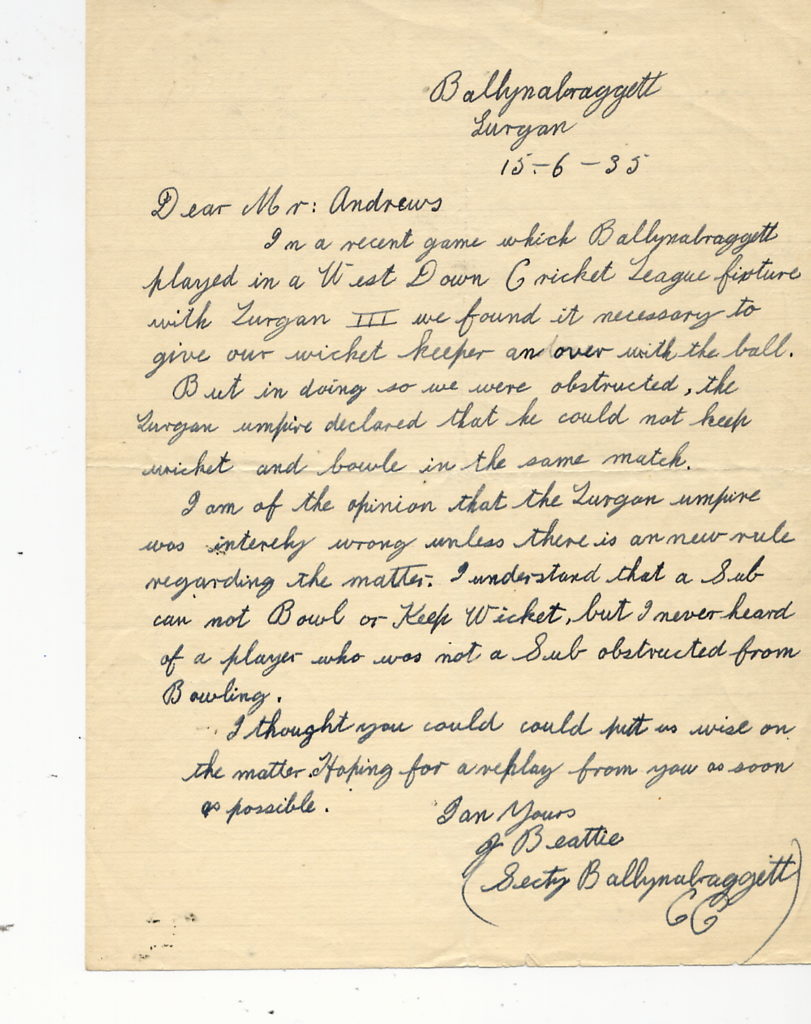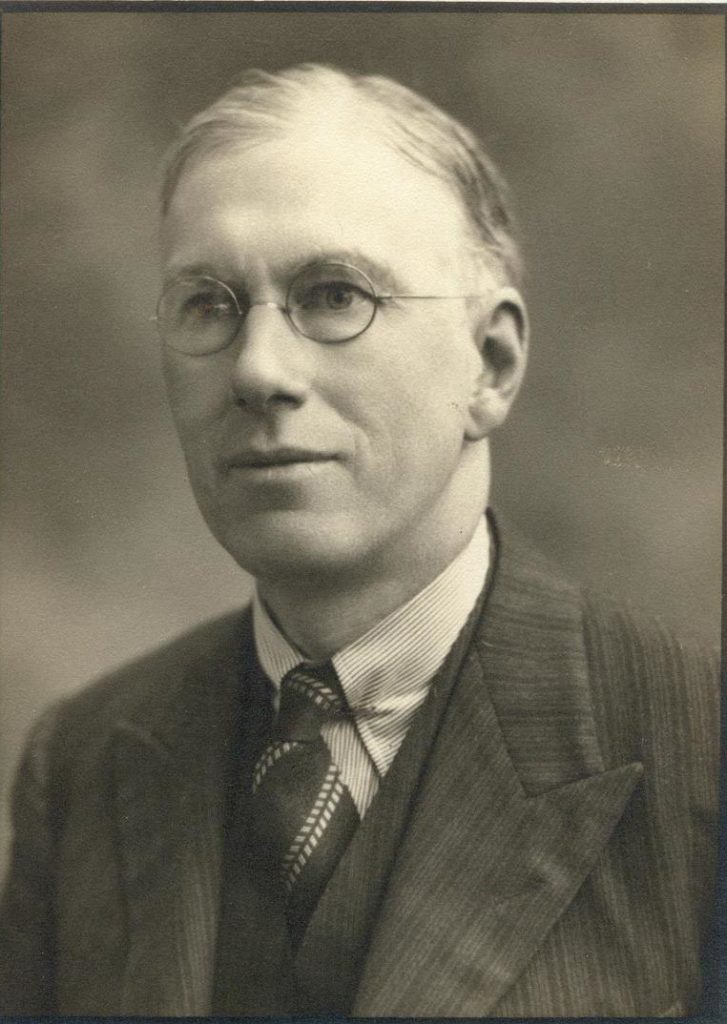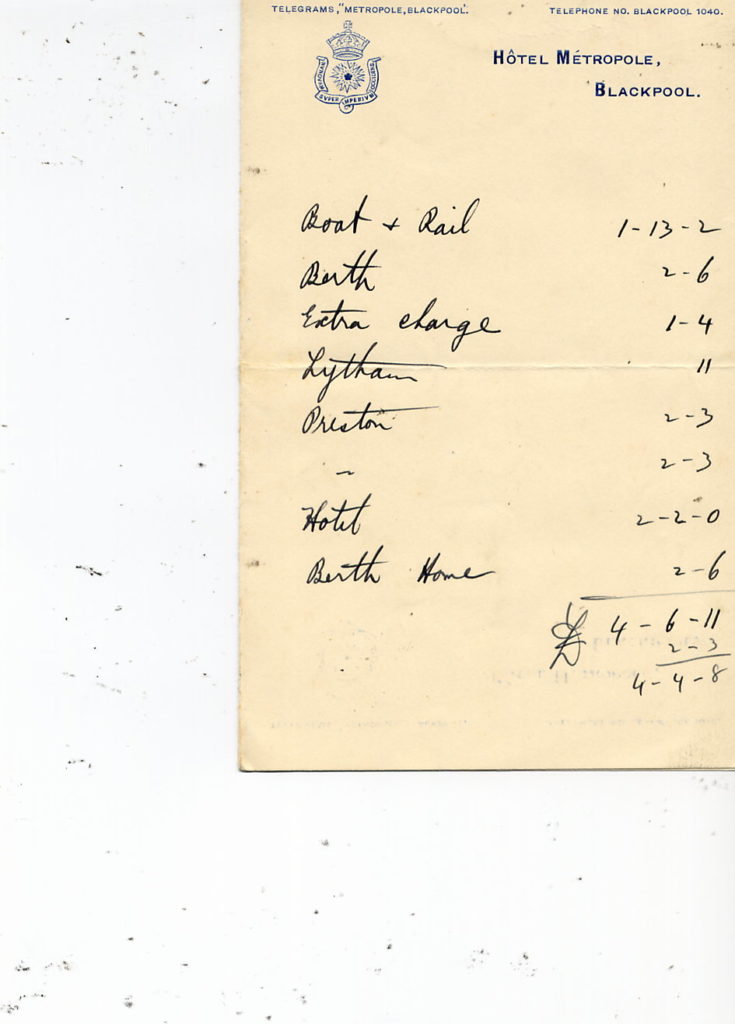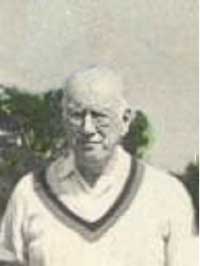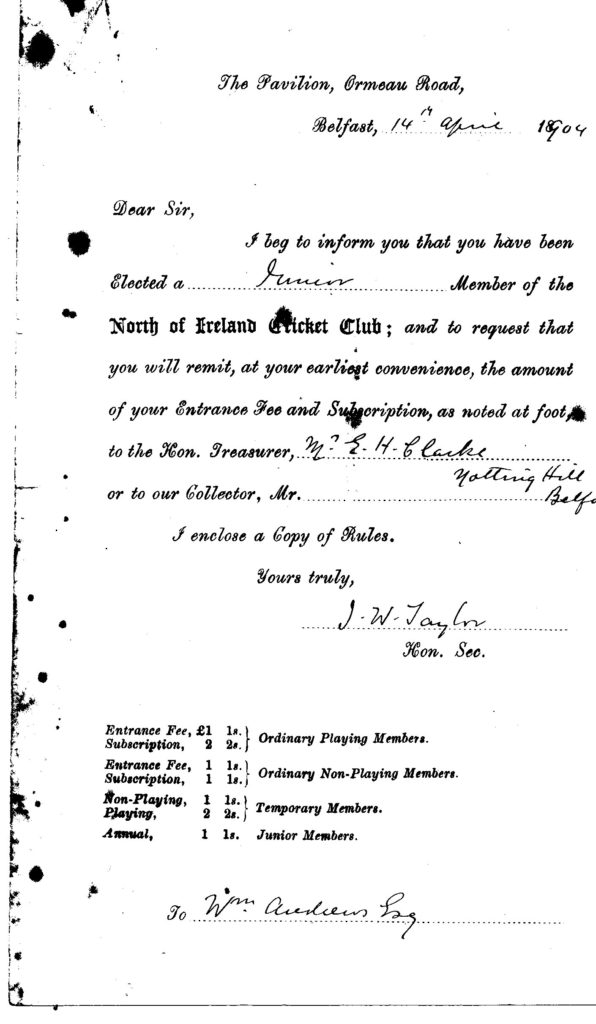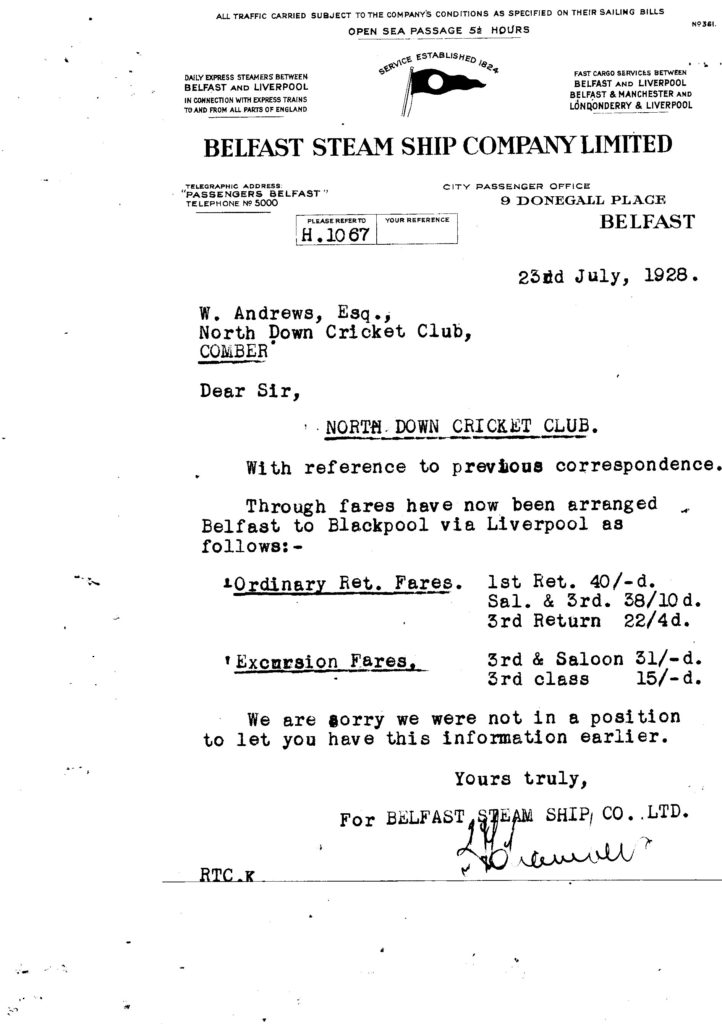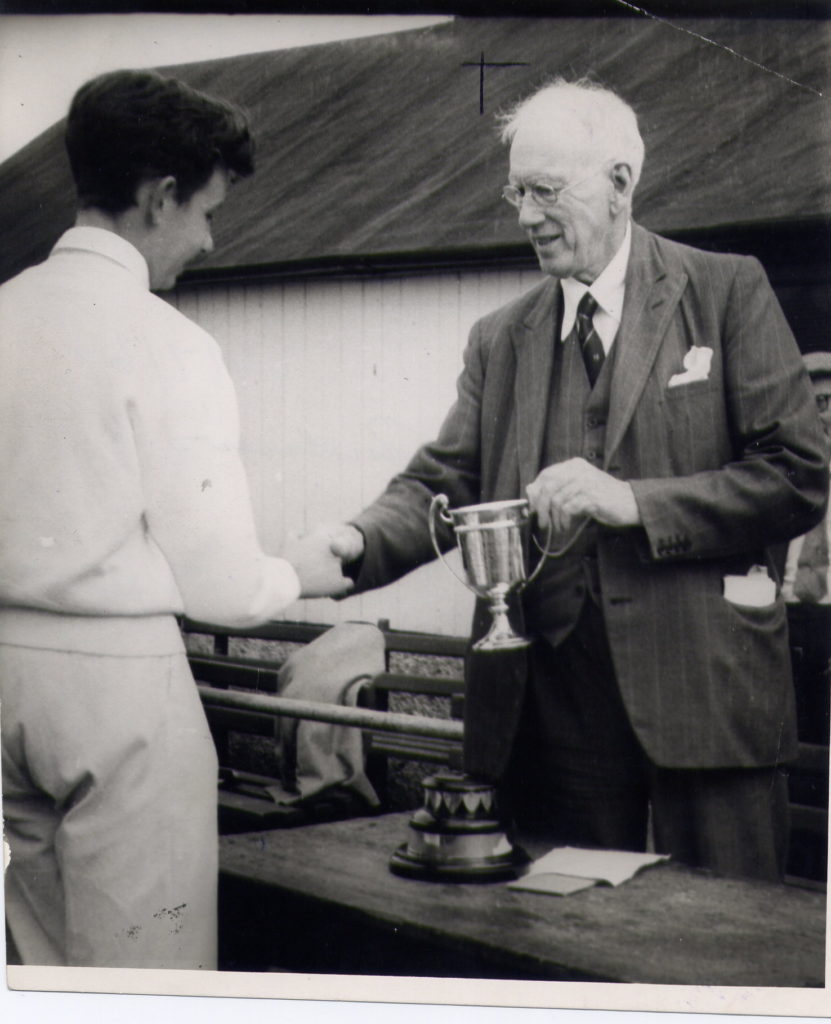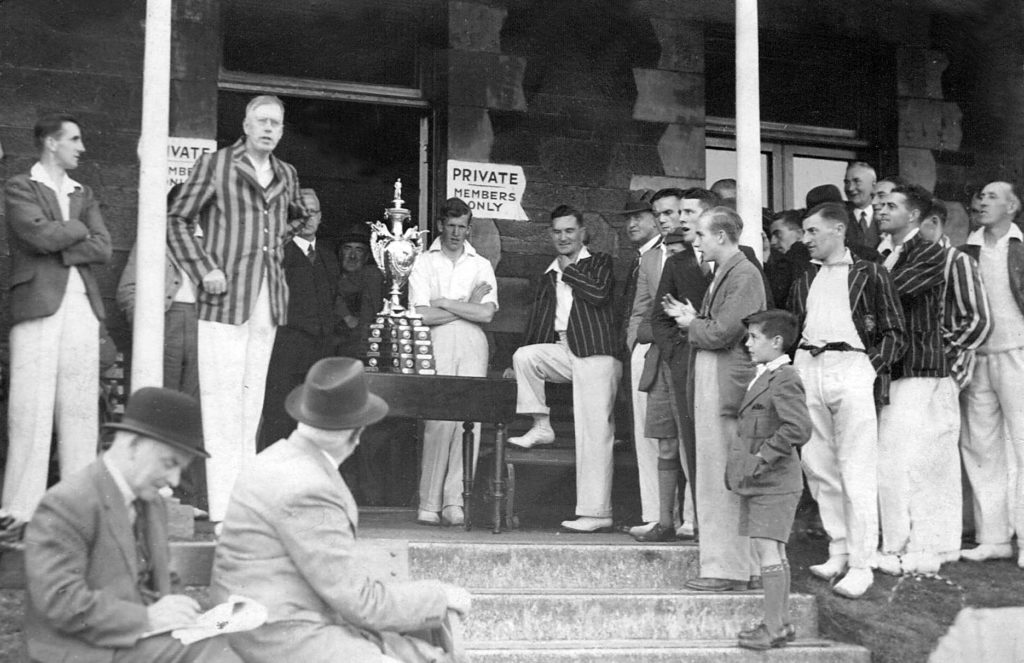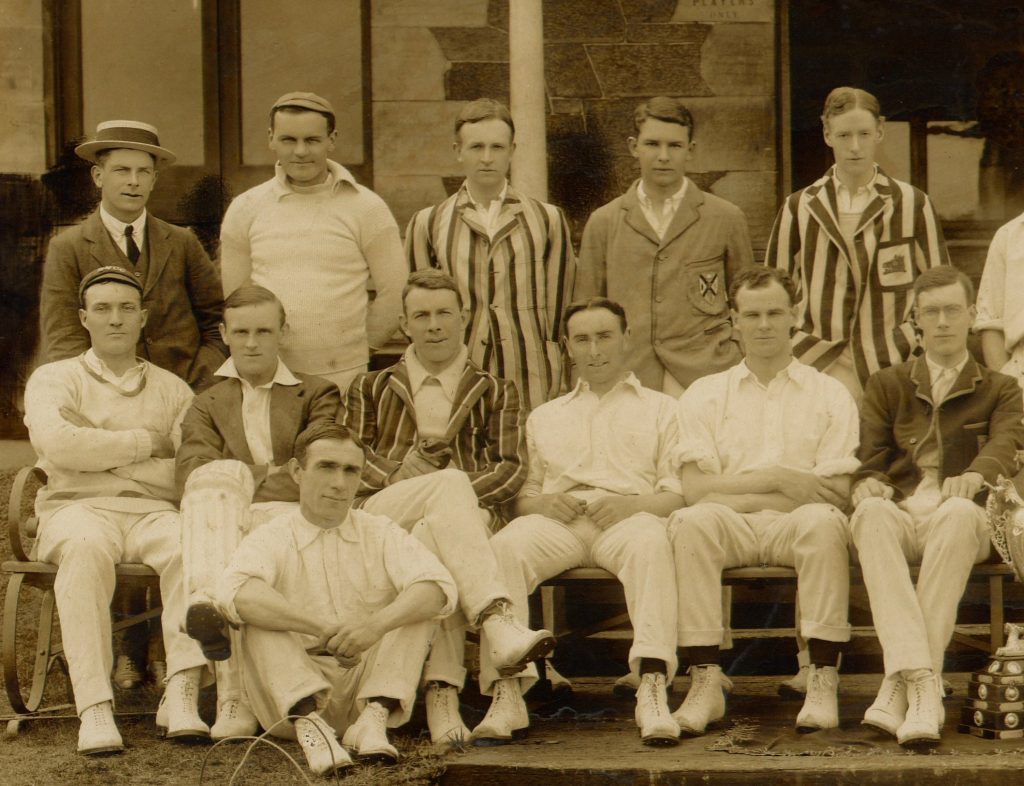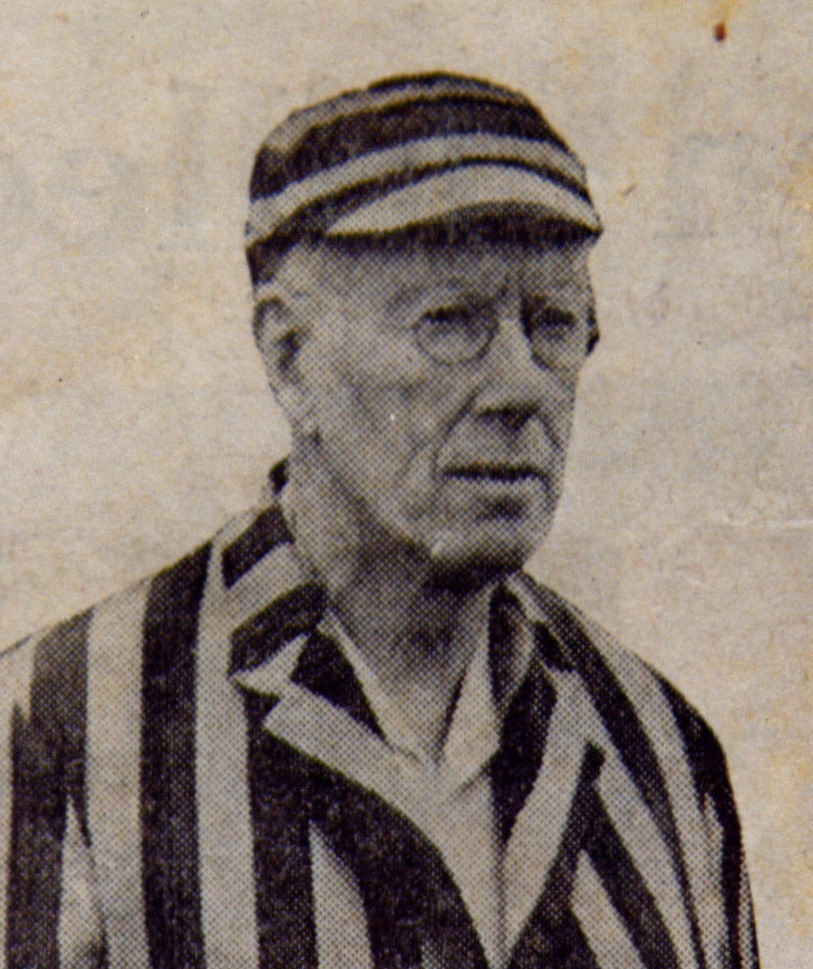
William D Andrews
Willie Andrews was president of the Irish Cricket Union in 1948 and 1952, chairman of the Northern Cricket Union from 1948 to 1966, captain of North Down 1st XI from 1910 to 1949 (excluding 1947) and club chairman and godfather right up to his death in 1966 at the ripe old age of 80. Without doubt he was the greatest character in the history of Irish cricket.
A tall gaunt man with a squeaky piercing voice, he was an eccentric figure with his yellow and green striped North Down blazer and a club cap perched precariously on his head. He was an authority on most subjects, not least the Laws of Cricket and the Rules of the Northern Cricket Union, and he exploited that knowledge to the full on behalf of club and union, the preference switching according to the occasion. He had the greatest respect for the game, its traditions and its etiquette and he was quick to rebuke those who failed to observe them. At best he was an astute and highly respected cricketing authority, at worst an exacerbating and frustrating adversary.
But he suffered no fools and even in death he was meticulous to the end. Although 80 years old he had carefully planned his bequests to include £50 to go to each of the clubs where he had scored a fifty!
He played in 20 Senior Challenge Cup finals and won on 13 occasions, a record only eclipsed in the last decade by the long-serving Waringstown duo of Roy Harrison and Ivan Anderson. Ironically, he scored a century in the 1913 final against Waringstown and in 1928 he also hit his top score of 170 against the same club. That season, at the age of 42 he made his one and only appearance for Ireland, although he captained and selected many Ulster interprovincial teams.
He travelled widely with the MCC and gave talks to local townsfolk about his adventures when he returned home. He was awarded an MBE in 1952 for his services to cricket.
Mr Willie was a director in the family-owned spinning mill in Comber and, at one time, the High Sheriff of County Down. He was the dominant aura at North Down throughout his life and adversaries challenged his authority at their peril. He was an avid collector of autographs, old photos, press cuttings and cricket memorabilia, and if some people found him tiring they usually tolerated his idiosyncrasies because of his fanatical love of the game. He played well into his seventies and, out of respect, he was always allowed a gentle half volley and the accommodation of a ‘single’. His big Humber Hawk was as much a part of the North Down scene as his high-pitched voice and in his obituary in Wisden he is referred to as “The Grand Old Man of Irish cricket”, a description of which he would have approved.
Willie Andrews was a legend in his time, the like of whom we will never see again. He was frugal but amazingly benevolent in other ways. Ian Shields can certainly pay testimony to the latter when, after being summoned to the Andrews family home at Ardara in 1965, he was informed that he was going to Lord’s for a week’s coaching in the company of his Regent House headmaster James Macdonald and his son Rory. Ian can vividly recall that week and its many ‘firsts’ – flying, Lord’s, the plush Clarendon Court Hotel, chauffer-driven cars arriving from Eton, Harrow, and Winchester College and mixing with household names of the rich and privileged. He also recalls having to make a full report of the trip to Mr Andrews, a meeting that was held in the billiard room at Ardara, adorned with portraits steeped in Ulster cricket and political history. Ian was not the first North Down youth to be so treated, as Harry Donnan was an earlier beneficiary of the big man’s generosity. Sadly he was the last to report to Ardara because on Christmas Eve the following year Willie Andrews was laid to rest in the family burial place in the grounds of Comber Unitarian Church, adorned with the stained glass window depicting the little boy with the bat and ball, a window that he had previously commissioned in memory of his sister Elizabeth.
Big Willie’s legacy to Irish cricket and to the wider community was immense. He had a great sense of responsibility and served with the Royal Army Ordnance Corps and the Royal Navy during World War Two. He had previously served in the First World War as a gunner in the Royal Artillery and then as a Lieutenant in the Ordnance Corps. He bestowed considerable gifts to local causes and was a particularly benevolent patron to his former school “Inst” where he served on the Board of Governors for 26 years.
His character was admirably captured in the following words in Wisden:
The Ageless Cricketer
England had her ‘Grand old Man’,
The famous Dr Grace,
And many are tales about him told.
But over here in Ireland,
We give the premier place,
‘To the Cricketer, who never will grow old.’
His deeds by now are legend,
And opponents to their cost
Found his strategy had left them in the cold.
And when the match was over,
They wondered how they lost,
‘To the Cricketer, who never will grow old.’
From Derry down to Dublin,
They know his lengthy stride,
And the way that he watches every ball that’s bowled.
And often to a visitor
He’s pointed out with pride,
‘As the Cricketer, who never will grow old.’
So cricketers salute him,
Who has given to the game,
A devotion, we still marvel to behold.
And with succeeding summers,
May he always stay the same,
‘The Cricketer, who never will grow old.’
William’s International career here
